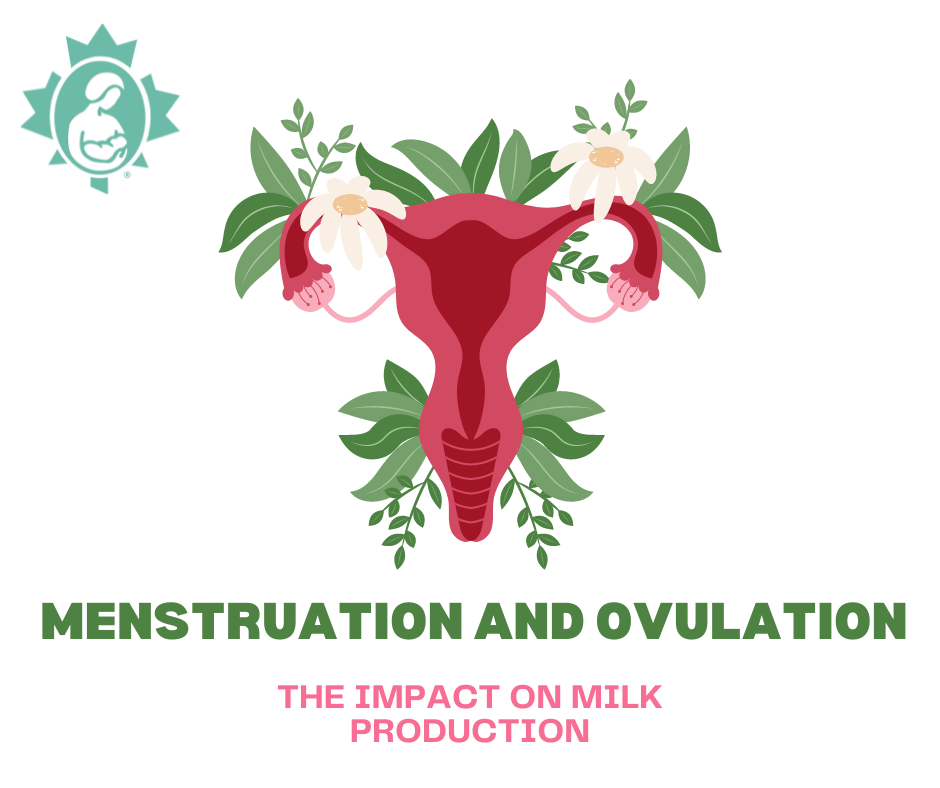
Exclusive breastfeeding will likely prevent the return of your menstrual cycle in the first six months after birth. It is a reliable form of birth control (98% effective), if all three of the following are true:
- Your baby is less than six months old.
- Your periods have not returned (no spotting).
- Your baby is breastfeeding exclusively on cue day and night. This means that your baby is not regularly receiving any other food or drink including water. It also means that your baby is not using a pacifier.
But everyone is unique. Some mothers get their periods back before their babies are six months old, even when all of these conditions are true. For other mothers, their menstrual cycle doesn’t return until they wean. This may be months or years. Most breastfeeding mothers will resume their periods between 9 and 18 months after their baby’s birth. See Birth Control and Breastfeeding for more information.
Frequent milk removal inhibits the release of the hormones that tell your body to restart your menstrual cycle. Therefore, the more you nurse, the less likely you are to start your period.
A decrease in milk production can cause the return of menstruation
You are more likely to get your menstrual cycle back as your baby nurses less often. This is often after your baby starts eating other foods. Your baby may decrease her nursing because of the return of your menstrual cycle. But more commonly your menstrual cycle returned because your baby already started nursing less or you started pumping less.
What to do about a decrease in milk production
If your supply has decreased because your baby is nursing less often, or you are pumping less often, then breastfeed or pump more times a day to increase milk production. Offering formula at this time will prevent your breasts from making more milk for your baby the next day. There is usually milk left in the breasts even when your baby stops feeding. You can go back and forth from one breast to the other and then back to the first breast again. (This is called switch nursing.) This gives your baby the opportunity to get more of the available milk. Each time you switch to the other breast, you’ll have a letdown. For most mothers, milk production is very resilient. If you are nursing your baby frequently, day and night, with no more than a 6-hour stretch between feedings, your supply is likely very stable. See Low Milk Production and How to Know Your Baby is Getting Enough Milk for more information. If you are concerned about your baby’s weight, contact your healthcare provider to have your baby’s weight checked.
If your baby is around the middle of the first year, your baby may be getting ready for the introduction of solid foods. See Starting Solids and “Baby-led Weaning”.
Menstruation can sometimes decrease milk production
Some nursing parents notice a decrease in the middle of their cycle, after ovulation occurs. Why does this happen? After ovulation, estrogen and progesterone levels in the body rise and calcium levels fall. The increase in these hormones can cause a decrease in milk production for some women. However, for most women, the increase in these hormones is not high enough to affect milk production. Most mothers do not notice any impact of menstruation on their milk production.
- What to do if menstruation causes a temporary decrease in milk production
- Continue to nurse your baby on demand. You may find she nurses more frequently or longer for a couple of days after you ovulate, but that’s okay.
- If your baby is older than six months of age, he may want more solid food. That’s fine. After a couple of days, try to go back to offering your baby the usual amount of solids. Offer the breast more frequently to maintain your supply.
- Consider talking to your healthcare provider about taking a calcium/magnesium supplement. Although there is no research to support this suggestion, some nursing parents find it helpful to take a supplement of between 500 mg calcium/250 mg magnesium and 1000 mg calcium/500 mg magnesium for three days before their period until three days after their period starts (Marasco & West; 2020).
Be encouraged. Even if your milk production decreases for a few days, it will increase with continued nursing. If you have any questions about breastfeeding or milk production, contact your local La Leche League Canada Leader for information and support.
If you found this information helpful, please consider making a donation to LLLC.
References
Marasco, L., & West, D. (2020). Making More Milk: The Breastfeeding Guide to Increasing Your Milk Production (2nd ed.). New York, NY: McGraw-Hill. (See for calcium-magnesium supplement information).
Morbacher, Nancy. (2020, May 25). Milk Production and Menses: What’s the Connection?
Updated 2024
